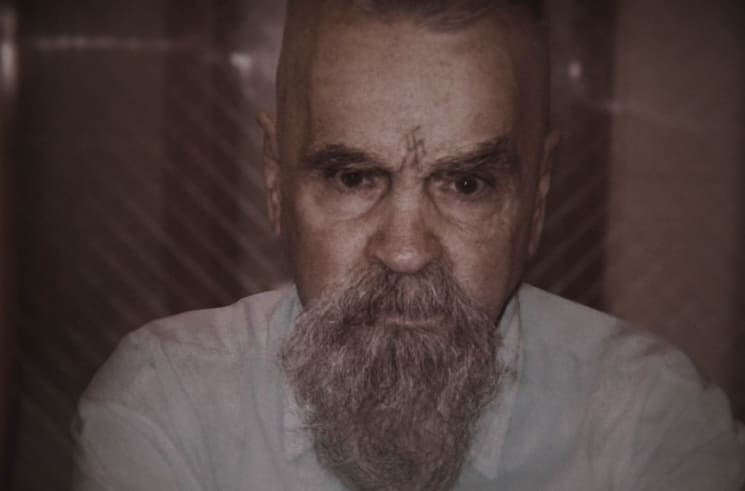Charles Manson has long been an enigma, a symbol for the disenfranchised and a hero for society's most depraved.
It's been nearly 50 years since the former two-bit thug-turned-supposed cult leader made headlines for helping orchestrate the murders of many in the Hollywood Hills. Since then, his celebrity has only grown, as new generations discover his bizarre pop music past, "Helter Skelter" and the supposed conspiracies surrounding him and the Manson Family. But what if the crimes weren't the crazed plans of a genius madman, but something far simpler: ones fuelled by revenge, drugs and respect?
Thanks to unprecedented access, Calgary filmmaker James Buddy Day explores just that in Manson: The Voice of Madness, a true crime doc that tries to separate myth from reality. Narrated by Rob Zombie, the film makes the most of hours of audio recordings between Day and Manson, as well as interviews with those closest to the California State prisoner. It's these discussions that stand out the most, as members of his entourage discredits the prosecution's original theories involving a race war, mind control and plans for Manson to hide out in the desert, only to emerge as some sort of world leader years later.
Although lacking in any real examination of Manson's ongoing status as a cultural figure, this is one of the more well-rounded and introspective docs to come out about the criminal. Where it does falter is in its recreations, sepia-toned scenes of murder and mayhem that feel like they're straight out of a late-night crime show (which makes sense, as the filmmaker works on true crime series The Shocking Truth).
Stylistic complaints aside though, Manson: The Voice of Madness
is a solid enough documentary that should reframe the way we think about Charles Manson and his friends and followers.
(Pyramid Productions Inc.)It's been nearly 50 years since the former two-bit thug-turned-supposed cult leader made headlines for helping orchestrate the murders of many in the Hollywood Hills. Since then, his celebrity has only grown, as new generations discover his bizarre pop music past, "Helter Skelter" and the supposed conspiracies surrounding him and the Manson Family. But what if the crimes weren't the crazed plans of a genius madman, but something far simpler: ones fuelled by revenge, drugs and respect?
Thanks to unprecedented access, Calgary filmmaker James Buddy Day explores just that in Manson: The Voice of Madness, a true crime doc that tries to separate myth from reality. Narrated by Rob Zombie, the film makes the most of hours of audio recordings between Day and Manson, as well as interviews with those closest to the California State prisoner. It's these discussions that stand out the most, as members of his entourage discredits the prosecution's original theories involving a race war, mind control and plans for Manson to hide out in the desert, only to emerge as some sort of world leader years later.
Although lacking in any real examination of Manson's ongoing status as a cultural figure, this is one of the more well-rounded and introspective docs to come out about the criminal. Where it does falter is in its recreations, sepia-toned scenes of murder and mayhem that feel like they're straight out of a late-night crime show (which makes sense, as the filmmaker works on true crime series The Shocking Truth).
Stylistic complaints aside though, Manson: The Voice of Madness
is a solid enough documentary that should reframe the way we think about Charles Manson and his friends and followers.
